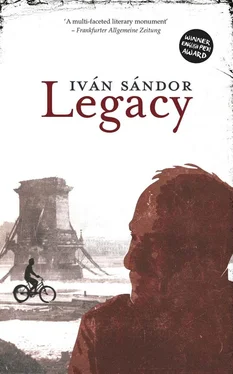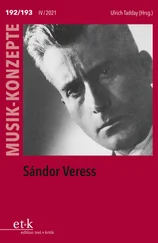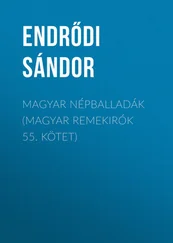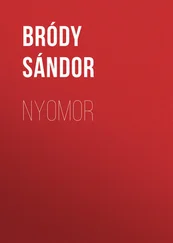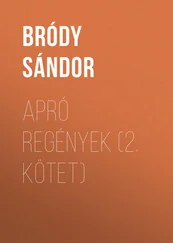Györgyi called yesterday. In the hour since she arrived she has said not a word about where she had been, so we can meet now; she did not ask so much as state it, although I did catch a sense of familiarity in her voice that I had not on previous occasions. There was also a hint of restlessness hovering behind the personal manner of addressing me at the same time as there was determination.
Her voice thereby was as if it were a story in itself, or rather it expressed the influence that a story had exercised on her.
The German businessmen were just sipping their drinks when she reached their table.
Both of them paid attention.
Her white blouse was the same as she had been wearing when we alighted from the number 1 tram at Thököly Road. Yet maybe a new one, all the same; perhaps she bought it while on the trip, as the girls would have been travelling in brand-new gear, and she would not wish to be outshone.
She does not wait for me to get up but pulls out another seat with a vigorous tug and sits down. As if she were being pursued and had just managed to pull up the drawbridge in the gateway of the castle walls.
The two Germans now pay attention to me; Györgyi’s appearance has added to my stock in their eyes.
She asks for a coffee.
I get the impression she senses the looks she is attracting from the next table.
She drinks her coffee.
She fishes out a photograph from a minuscule straw purse and slips it in front of me on the table. A girl of about sixteen and a woman of about forty. Györgyi more closely resembles the older woman. A stretch of rainy street; both of them in raincoats, both with yellow stars. Both are looking into the lens of the camera. The girl is wearing a beret; the woman a knitted cap that can be pulled down to the ears. On both there is a curl of hair on the temple. They do not look sad. Or listless. There is no fear on their faces. It’s as if a prying eye were examining them through the camera lens, probing who you are, what you feel, what you are thinking, and they had decided that they were not going to give anything away. Let the person looking at them see they are as they are. They have nothing to own up to, nothing to hide. They would like to move on, it’s true, but they have no objection to having a record made of them.
Didn’t you see her?
No, I didn’t, I say. How would I have done?
On one of the display cases that have been installed in the recently renovated stations of the original underground line. The one by the Opera House on Andrássy Avenue. She had discovered it there by pure chance on the day her train was leaving. Her mother and grandmother in the autumn of 1944. She had made enquiries this afternoon as to where it had been found, who found it and how come it ended up in the display. It was found in some archive, the official in charge had said; one of several dozen photographs of its kind, and it was pure chance that this one been picked. All the same, you ought to have asked me. There were no names on the pictures, no text to refer to, the only guides being the yellow stars and the bare branches of the trees and rainy pavement. A huge number of photographs had been accumulated, all the people who could be seen in them anonymous; I’m sorry, we are terribly sorry, the official had said.
I ask if I can order her a drink.
No, thank you … Well, maybe a dry Martini.
I ask for a glass of vodka.
On one of the pictures that she had sent in the anonymous envelope one could see a house in Amerikai Road, I say. Was that why she had followed me on the tram?
I’ve already said that I recognized you.
She downs the Martini. She is past thinking back.
Thinking back to what?
She searches for the words. Well, the past, she says finally, saying it as if she were ashamed to designate all the things about which she had not thought for a long time with such a banal word. But now she was incapable of anything else, she adds. Already, quite a long time ago, a gap — that is how she puts it — had been left inside her; but, despite this, what, for a very long time may have filled that gap, were memories that she had thought of as hers but were actually those of her mother. But let’s not bother with explanations, she says in a frosty tone.
I think something must have happened, and it was not just that she had come across this new photograph.
I tell her that I had discovered, at the Opera metro station, a composite photograph of the class at the Israelite Gymnasium which passed the school-leaving examination in 1944, and among the portraits was one of an acquaintance who has long been living in Paris.
Her fellow teacher had not been sick; she did not have to substitute for anyone. She had merely taken time off and joined the class excursion at her own expense. Twenty-two students had travelled to Ravensbrück — fifteen girls and seven boys — with two teachers to lead the group. Where are you off to, her fellow teachers had asked at the railway station? That’s brilliant, at least you’ll be able to keep the kids in order.
She had had no expectations of the trip, she says. What could I have expected? But she had had a feeling that there was some business she was holding inside her that had to be attended to, and I did not dare ask what that was because, although her voice is cool, I reckon I can see in her look a plea for me not to ask her what business had to be attended to, as if her look was saying that she could not explain it anyway.
The Germans watch as we down our drinks. As far as I can tell they are satisfied with us — we were getting on pretty well, they must have thought.
Before her mother died she had asked that if a gravestone were to be ordered she should also have engraved on it her own mother’s name with the date and place of her birth and the date and place of her death, which was Ravensbrück.
Her mother had never before disclosed the name of the camp. She did not hide the number tattooed on her arm, but she not willing to mention the name of the camp.
When we got near the gates to the camp the other two teachers stood at the back of the group and behaved as if I were the leader, even though they, too, could speak German well.
The students had made their way towards a whitewashed building.
On the left there is a memorial column and an artificial lake, I say to Györgyi, the glass of vodka in my hand.
On the left there is a memorial column and artificial lake, Györgyi says.
The crematorium is not far from the entrance, on the right, I say.
The crematorium is on the right, she says.
Two chimneys, five viewing apertures with shutters over them.
That’s right, she says.
I see that she would now attempt to set off in the direction of my gaze.
Two lines of a dozen barracks facing each other, between them the Appellplatz. Six ten-metre posts, each carrying two floodlights, I say.
They must have lined up on the Appellplatz I don’t know how many times each day, she says, so when I was standing there what went through my head was that I could have paid a visit long ago, but I did not want to.
She stands on the Appellplatz, takes a few steps. She is walking in the footsteps of her mother, her grandmother and her mother’s friend, I muse. I do not tell her that I too have stood on the Appellplatz in the footsteps of her mother, grandmother and mother’s friend when I still had no idea that among the many thousands and tens of thousands of traces were some belonging to someone I would one day come to know. I did not stand between armed guards and students there but between two faceless GDR officials. They hesitantly allowed us to leave the prescribed route and to enter the former camp, accompanied us silently to the Appellplatz. Because Györgyi had stood there it was now her story; as I stood there at that time I had the feeling that it was rather the story of the two faceless East Germans.
Читать дальше
